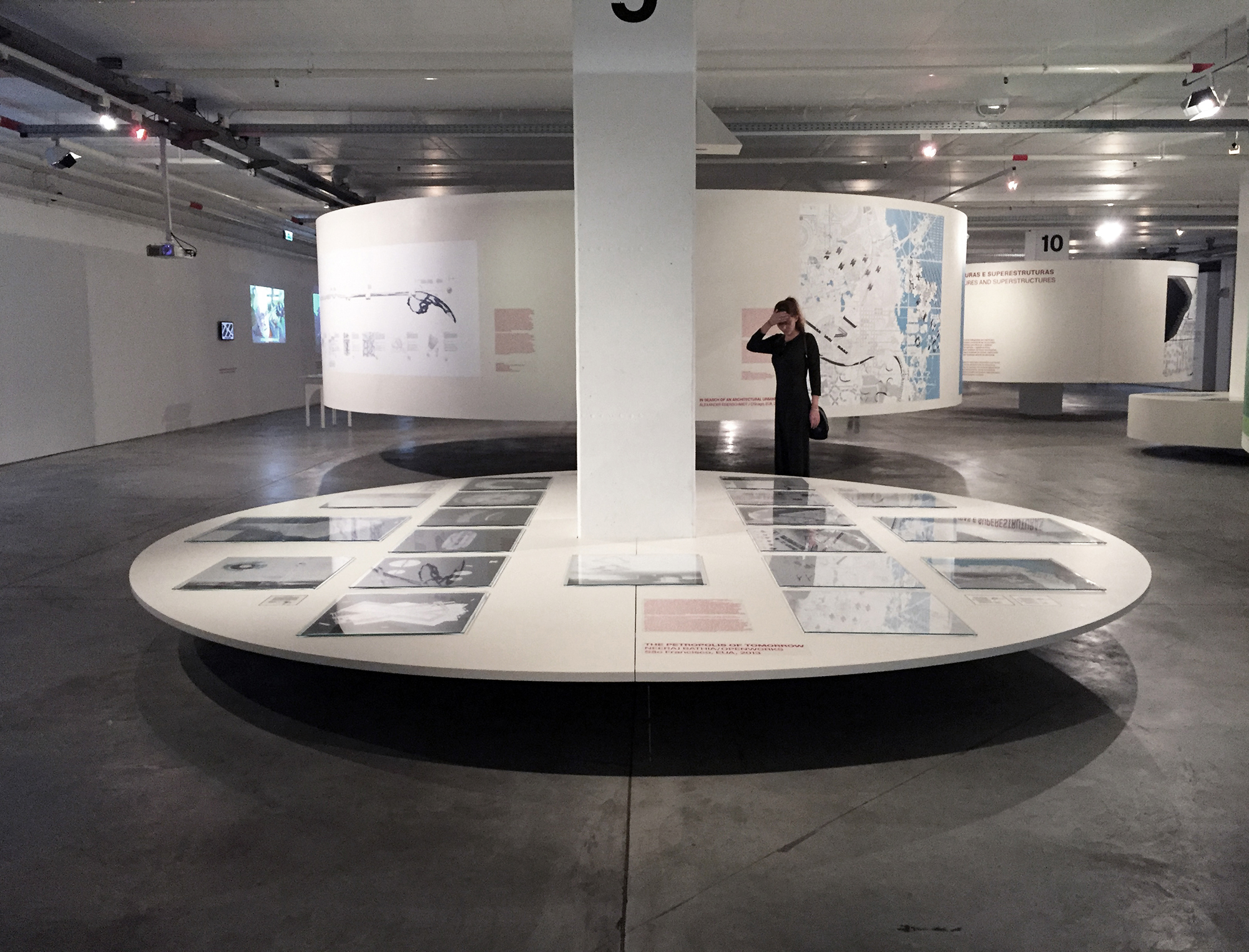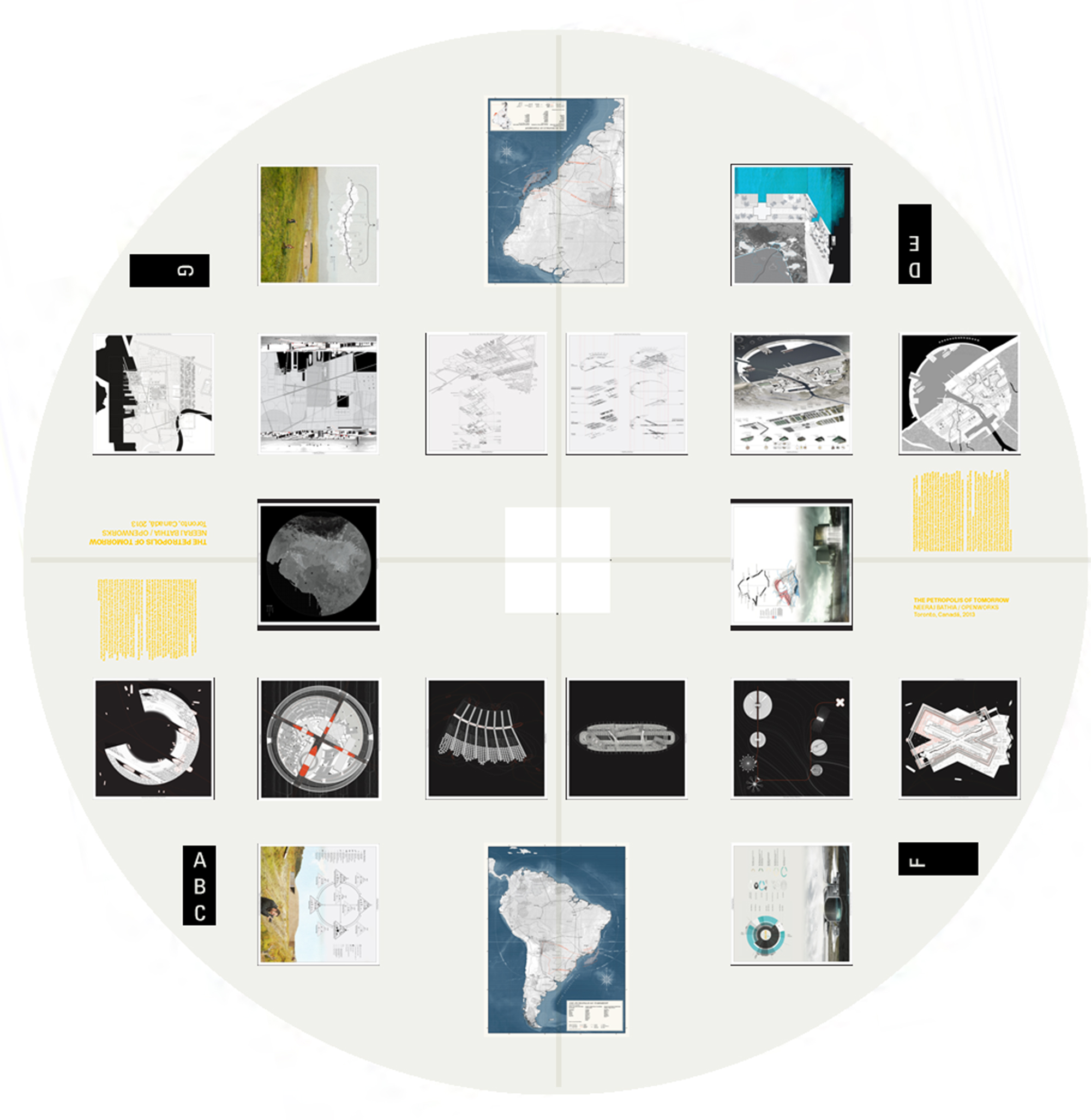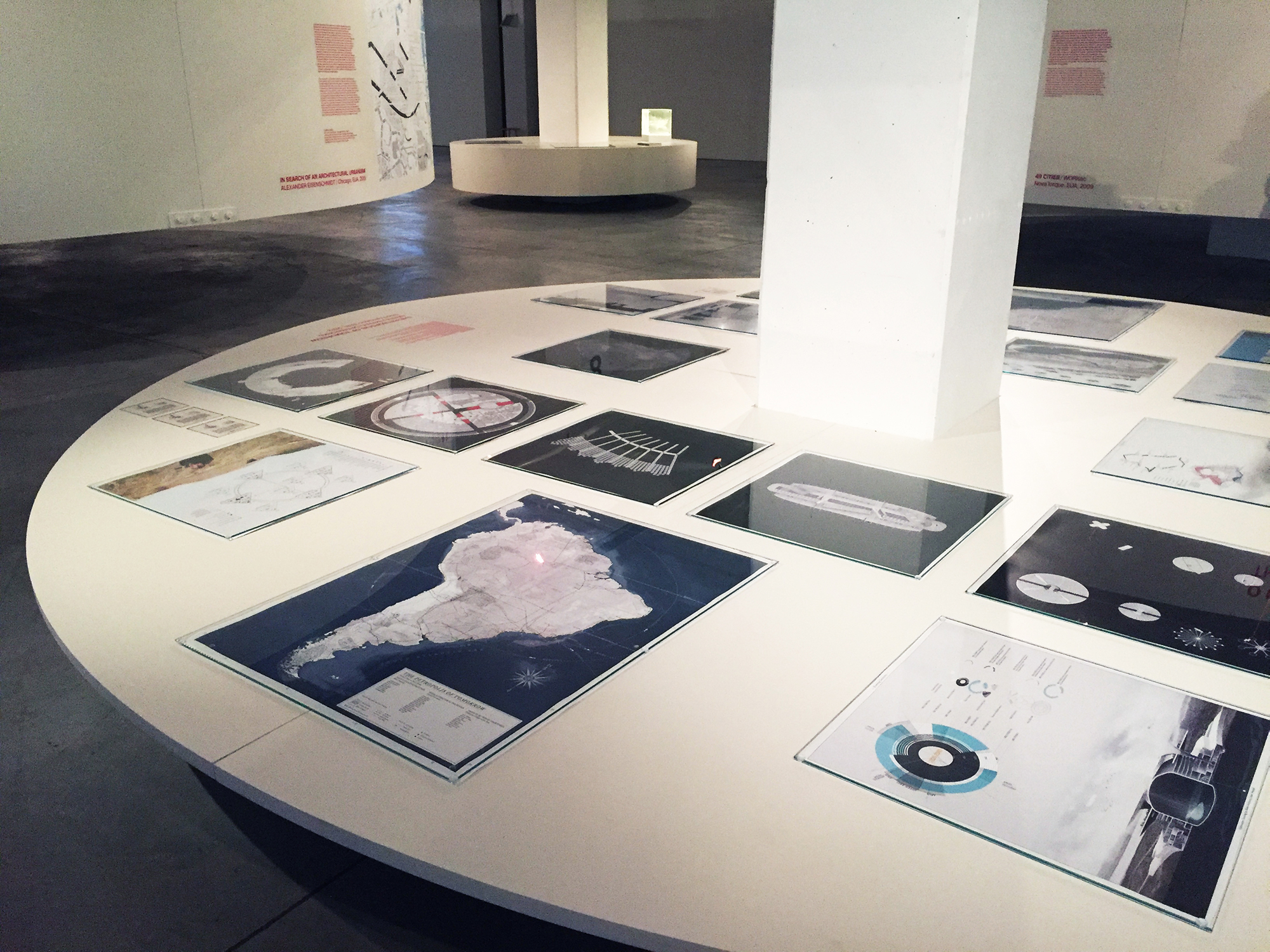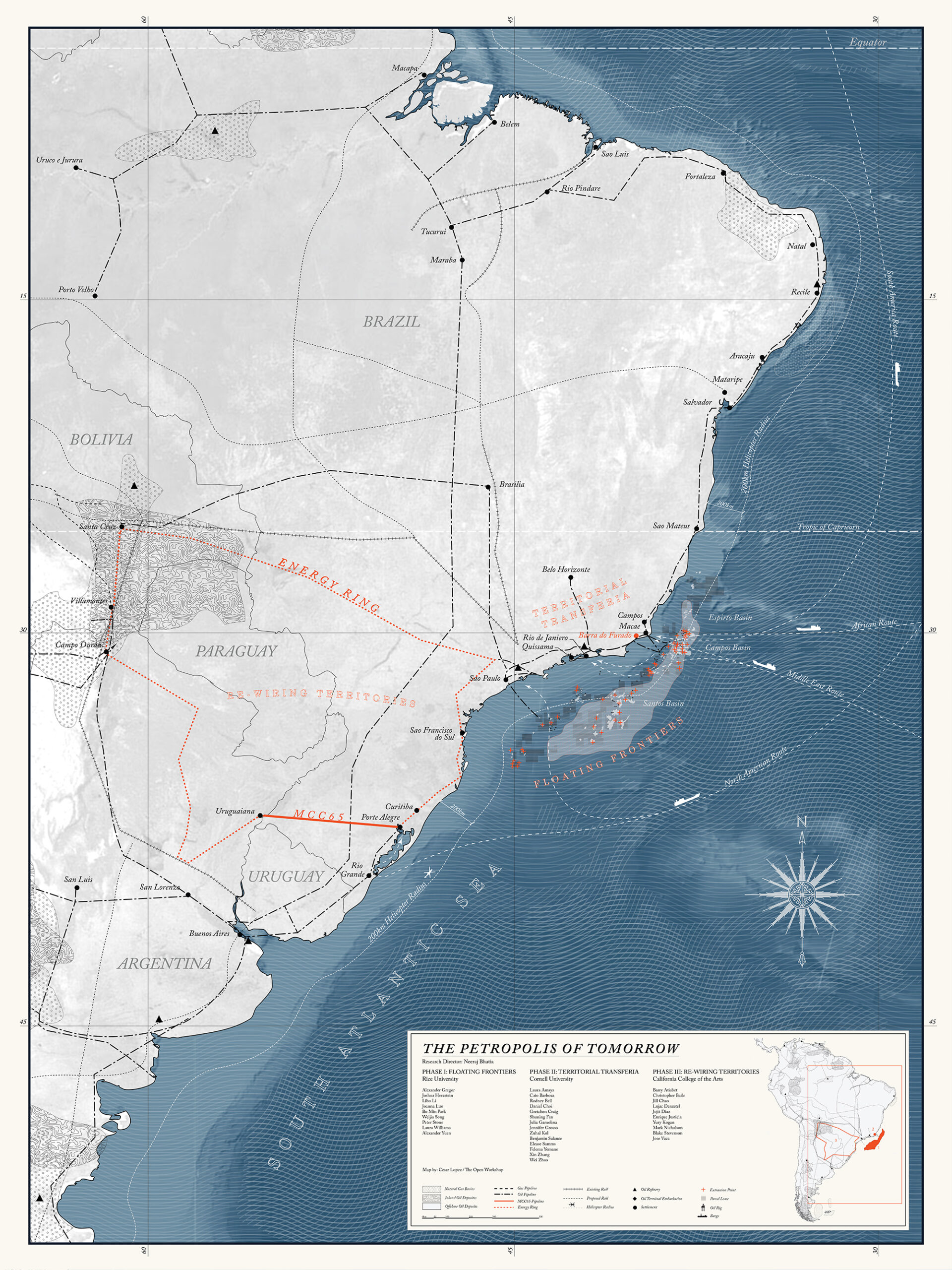Location:
Lisbon, Portugal
Year:
2016
Type:
Installation
Status:
Complete
Project Credits:
FIG Projects (Curator)
Client / Date of Completion:
Lisbon Architecture Triennale, 2016
Research Director:
Neeraj Bhatia
Phase I: Floating Frontiers
Alexander Gregor, Joshua Herzstein, Libo Li, Joanna Luo, Bo Min Park, Weijia Song, Peter Stone, Laura Williams, Alexander Yuen
Phase II: Territorial Transferia
Rodney Bell, Gretchen Craig, Shuning Fan, Julia Gamolina, Jennifer Grosso, Zuhal Kol, Benjamin Salance
Phase III: Re-Wiring Territories
Jill Chao, Lujac Desautel, Enrique Justicia, Blake Stevenson
The Petropolis of Tomorrow is a design-research project directed by Neeraj Bhatia, which examines new Petropolises — or cities formed from resource extraction — associated with energy harvesting and production in South America. To date, infrastructure tied to natural resource extraction has rarely been designed using long-term, holistic planning. Despite the growing logistical landscape dedicated to oil extraction, little design effort has been afforded to engaging and empowering the unique social, cultural, environmental, and economic challenges that face new communities and landscapes. The Petropolis of Tomorrow is a multidisciplinary project undertaken in collaboration with The South America Project (SAP), Harvard’s Graduate School of Design, California College of the Art’s Urban Works Agency, Rice University’s School of Architecture, and Cornell University’s Department of Architecture. Its aim is to provide new templates for architecture, urbanism and infrastructural design tied to resource extraction that privileges a systemic symbiosis between economic, political, environmental and social systems.
The project has been developed through three phases, which sequentially track the logistics of the oil industry in and around Brazil. Phase I, Floating Frontiers investigates the water-based urbanism of offshore extraction sites and proposes a series of artificial islands currently being investigated by the oil industry. Phase II, Switchscapes, examines the growing number of company towns that are developing at the land/water interface and transfer of materials, resources, and labor at these sites. Phase III, Rewiring Territories, focuses on the future production of conduit infrastructures, such as pipelines, that move energy across the South American hinterland. Understanding the lifespan of the oil industry as approximately twenty-five years, The Petropolis of Tomorrow questions how to leverage design opportunities that empower local populations and ecologies by reconfiguring extraction processes, infrastructures, and communities to account for their future production(s).



